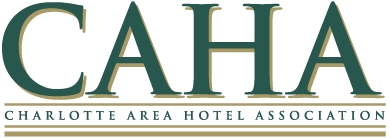The 2010s is now the most prolific decade when it comes to new office construction in Charlotte's center city.
Though that might hardly be surprising to some, it only passed the 5.3 million-square-foot mark previously set in the 2000s within the last year, speaking to the delay of major office projects breaking ground in this cycle. But, so far, 6.1 million square feet of office space is expected to deliver in the center city in the 2010s and, as of December 2018, Charlotte was the fifth busiest CBD in the U.S. for office construction.
Those statistics come from Charlotte Center City Partners' 2019 State of the Center City, a research and economic development report put out annually by the organization. The report — which includes uptown, South End, West End and midtown as part of center city — evaluates what's changed since the previous year with data on development, transportation and other metrics driving center city.
"I think about what an exciting time it is to be in the city-building business in Charlotte during this period of our history," said Michael Smith, president and CEO of CCCP. "You see the world pivoting towards re-urbanization, and Charlotte spent four decades preparing for it. We’re uniquely positioned to receive it."
Some other numbers to chew on as it relates to growth and development in Charlotte's center city:
$1.7 billion in investment is under construction currently
Planned or under construction:
6.9 million square feet of office space
8,458 residential units
2,310 hotel rooms
948,167 square feet of retail
Nearly 15,000 tech workers moved to Charlotte between 2011-16
Average uptown apartment rent is $2.05 per square foot
Average South End apartment rent is $1.83 per square foot
In an expansion cycle that started out with a lot of new apartment construction — which continues today, though it's tempered a bit in the urban core compared to two or more years ago — office has pushed ahead to become the major commercial real estate player in the past couple of years, with projects like Bank of America Tower, Duke Energy's 1 million-square-foot building pegged across Tryon Street from its headquarters, Ally Charlotte Center, FNB Tower-Charlotte and a Deloitte-anchored building among the office developments planned or underway now — and that's just in uptown. South End has seen its own discovery of office development, with several such buildings in the works or under construction.
"The vibrancy of our entire region begins and ends with jobs, and everything else we’re doing is in response to that," Smith said.
A number of hotels are also either in planning or underway today in center city, with three alone on Stonewall Street (the Home2 Suites by Hilton and Even Hotel at Stonewall and Caldwell streets in addition to the JW Marriott at the Ally Charlotte Center site a few blocks down). South End will see its first hotel open this year, the Holiday Inn Express on South Tryon Street, between Kingston and Park avenues.
But with enormous growth comes cost — rental rates across all sectors are rising and, particularly as it relates to residential, continue to create challenges around affordable housing.
Part of a recent affordable-housing commitment by Ally Financial, Barings and Bank of America includes the donation of two land parcels (worth a little more than $7 million) in uptown Charlotte to build housing with income-restricted units. Part of the push by Charlotte City Council and others who work on affordable housing locally is building or preserving affordable units in areas in and around uptown that are in proximity to jobs and mass transit.
Smith said CCCP is involved in affordable-housing discussions locally and said some recommendations from the Evergreen report, which CCCP was involved in, remain to be done locally.
"We need thought leadership to stay on top of this and pull all of the housing initiatives together," he said, adding that he looked forward to Local Initiatives Support Corp. opening an office in Charlotte. LISC, a nonprofit based in New York, has been tapped to lead the strategy for how money from the Foundation For The Carolinas' housing fund for affordable housing will be spent and may act in an advisory role for public affordable-housing dollars as well, though City Council ultimately makes those final decisions.
On an office market basis, though, Smith said Charlotte continues to be competitive compared to peer markets in rental rates, which will continue to draw institutional investors.
One market sector that hasn't come back since the last decade: condos. There have been a handful of small, high-end condo projects in areas like Myers Park and Eastover but, unlike the last cycle, no condo towers have come out of the ground in uptown.
Smith said a mix of market, structural and macro economic factors are contributing to that.
"Right now, institutional money lines up for multifamily, the apartments," Smith said.
Finally, 2019 is the last year of this decade, so CCCP and others will be gearing up to develop a new vision plan that looks ahead over the next decade and beyond, Smith said, a process that's been done every 10 years since the Odell plan in 1966. That work will begin this year and go into 2020.
"We change with the economy and with politics and philosophy and pop culture and everything — that’s why it’s so important to check in and do some course correction every 10 years," Smith said.
